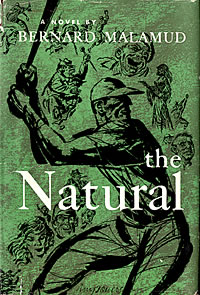by John M. Floyd
Today I'd like to talk about two deceased writers whose stories still delight and inspire me. One of these authors I heard about from an agent I had long ago and the other I discovered when I happened to stumble across one of his stories in an anthology. Both wrote mostly short fiction and were widely published, but almost no one seems to know their names.
The first is Jack Ritchie (born John George Reitci, in 1922, the son of a Milwaukee tailor). Over a period of 35 years Ritchie wrote and published almost 500 short stories, almost all of them mystery/crime/suspense tales, and--like O. Henry--his endings often had a diabolical twist. His fiction appeared regularly in Manhunt, Mike Shayne's Mystery Magazine, The New York Daily News, Ellery Queen's Mystery Magazine, Alfred Hitchcock's Mystery Magazine, and many other publications. (He once had two stories in the same issue of AHMM.)
The only book I own by Mr. Ritchie is Little Boxes of Bewilderment, a collection of 31 of his stories--but I think I've found and read most of the stories that he published. As I've said, a lot of them were featured in mystery magazines, but many can also be found in anthologies, including more than fifty Alfred Hitchcock anthos.
One of Ritchie's stories, "The Green Heart," was adapted into the feature film A New Leaf, starring Walter Matthau and Elaine May, and another of his stories, "The Absence of Emily," has been filmed twice and won the Edgar Award in 1982. Several of his stories were also adapted for TV series iike Alfred Hitchcock Presents and Tales of the Unexpected.
I actually have a connection, of sorts, to Jack Ritchie. His longtime agent, Larry Sternig, was also my agent for several years, until Larry's death in the late 90s. He was one of that rare breed of literary agents who represented short stories, and was in many ways a mentor to me back when I was just getting started in all this. (Larry once told me he talked Robert Bloch, another Milwaukee native, into writing Psycho.) Soon after agreeing to represent my stories, Larry said to me, "One of the things you should do to become a better writer is to read the stories of a guy named Jack Ritchie," and he mailed me two of Ritchie's collections, with an additional note telling me to send them back to him when I was done. I binge-read them both and returned them as requested, and it was only years later that I located a copy of Little Boxes of Bewilderment on Amazon and snapped it up. Ritchie's collections--and his only novel, Tiger Island--are mostly out of print and hard to find.
The other short-story writer I dearly love to read--and whose work has taught me a lot--is Fredric Brown. I had no idea who he was before finding one of his stories, "Voodoo," in an anthology years ago. That story, like many of Brown's, is only about 300 words in length--but it's brilliant.
Fredric Brown was born in Cincinnati in 1906, the son of a newspaperman, and worked as a journalist himself for most of his career. He wrote many novels and hundreds of short stories, and--oddly enough--his work was almost equally divided between mystery and science fiction. (His first novel, The Fabulous Clipjoint, won an Edgar Award in 1948.) I own several collections of his, including Miss Darkness (31 mystery/suspense stories), From These Ashes (116 science fiction and fantasy stories), and Nightmares and Geezenstacks (47 short-short stories, which Stephen King called a "particularly important work"). Interesting note: Brown seemed fond of punnish titles, like "Nothing Sirius," "A Little White Lye," and "Pi in the Sky."
Fred Brown's short story "Arena" was used as the basis for the episode of the same name in the original series of Star Trek, and was voted by Science Fiction Writers of America as one of the top twenty SF stories written before 1965. His short story "Naturally" was adapted into Geometrics, a short film by director Guillermo del Toro, and another story, "The Last Martian," was adapted into "Human Interest Story," an episode of Alfred Hitchcock Presents. His novel The Screaming Mimi became a 1958 movie starring Anita Ekberg and Gypsy Rose Lee.
 These two writers had one thing in common, besides their love of the short form and their talent with mystery/crime stories: both had a minimalist style that was long on dialogue and humor and short on exposition and description, and almost always included surprise endings. In their stories, things started out fast and never slowed down. I love that.
These two writers had one thing in common, besides their love of the short form and their talent with mystery/crime stories: both had a minimalist style that was long on dialogue and humor and short on exposition and description, and almost always included surprise endings. In their stories, things started out fast and never slowed down. I love that.If you're interested in trying new authors, here's a list of some of my favorites stories by these two writers:
Jack Ritchie:
Shatter Proof
Traveler's Check
The Absence of Emily
The Green Heart
For All the Rude People
Play a Game of Cyanide
The Best Driver in the County
Memory Test
Number Eight
Fredric Brown:
Nightmare in Yellow
The Laughing Butcher
A Little White Lye
Rebound
The Arena
Voodoo
Answer
Placet Is a Crazy Place
I encourage you to find some of these stories--reading them won't take long. I think you'll like their authors.

















